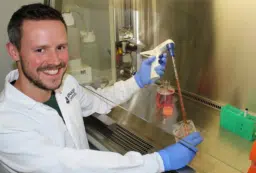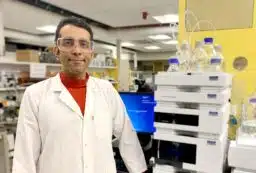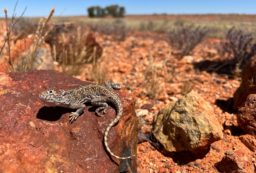How mini-earthquakes and tornados could one day be saving lives
Monash University engineer Leslie Yeo is using tiny earthquakes and tornados to assist the detection of biohazards and germ warfare. He and collaborator James Friend at the Micro/Nanophysics Research Laboratory hope to integrate their technology into an inexpensive, credit-card-sized sensor within five to ten years.
The problem is how to cope with the tiny levels of toxic organisms that can do considerable harm. “The ability to detect such minute levels is hampered by the sensitivity limits of our current technology,” Yeo says.
So the researchers have developed a means of rapidly increasing the concentration to detectable levels.
They employ sound waves travelling along the surface of the credit-card-sized chip to aggregate trace amounts of dangerous micro-organisms within a sample into a small volume making detection easier.
These surface acoustic waves are minute analogues of an earthquake, only about a nanometre or a millionth of a millimetre high.
But when a sample drop is placed atop the surface along which the waves travel, the sound energy leaks into the drop and creates a mini-tornado inside.
“Microbes in the sample are caught up in the tornado and spun down to a point on the surface within seconds,” says Yeo. The localised accumulation of micro-organisms leads to an increase in concentration to the level where they can be detected by sensors.
Thanks to advances in nanofabrication technology, the entire device can potentially be made incredibly cheaply-about 50¢ a device.
Such portable and disposable micro-devices could be deployed inconspicuously across cities as detection systems to alert relevant authorities in the event of a ‘dirty’ bomb. They could also act as tiny ‘sniffer dogs’ to detect airborne or waterborne pathogen outbreaks such as the SARS or avian bird flu viruses.
Leslie Yeo is one of 16 early-career scientists presenting their research to the public for the first time thanks to Fresh Science, a national program sponsored by the Federal and Victorian Governments.




 Fresh Science is on hold for 2022. We will be back in 2023.
Fresh Science is on hold for 2022. We will be back in 2023.